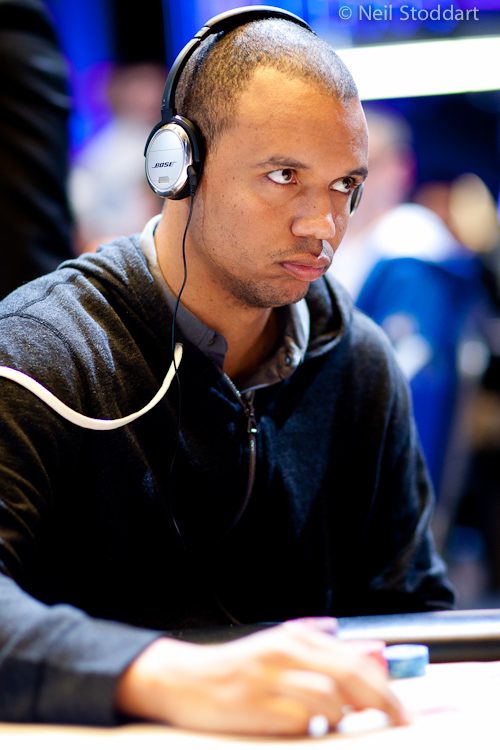November 20 2013, by Eric Danis
Deadspin Talks Poker Metrics, One Billion Hands
Earlier this week, OneBillionHands.com CEO Dave Thornton wrote a guest column about poker metrics on popular website Deadspin.com…
BRINGING MONEYBALL TO POKER
![]() If you watched live coverage of this year’s World Series of Poker November Nine Final Table earlier this month, you were more than likely introduced to the concept that is OneBillionHands.com, a website that is creating Moneyball for the poker world, poker analytics taken to the next level.
If you watched live coverage of this year’s World Series of Poker November Nine Final Table earlier this month, you were more than likely introduced to the concept that is OneBillionHands.com, a website that is creating Moneyball for the poker world, poker analytics taken to the next level.
During a regular poker broadcast, we often see the odds of a player winning a hand – 53% vs 47%, for example – this simple equation evaluates the current players’ holdings, the board, the cards that have been mucked and the cards to come to come up with its percentage.
 What Dave Thornton explains in his guest column for Deadspin.com is how OneBillionHands.com (OBH) changes the way we see poker. OBH measures luck by producing a Situation Score. In order to collect their data, the OBH team accumulated data from over a billion hands played on online poker platforms in early 2011. Each time players are dealt cards and a new card hits the board, the luck factor “Situation Score” changes. The articles uses a famous 2009 WSOP Main Event Final Table hand between Phil Ivey and Darvin Moon as an example:
What Dave Thornton explains in his guest column for Deadspin.com is how OneBillionHands.com (OBH) changes the way we see poker. OBH measures luck by producing a Situation Score. In order to collect their data, the OBH team accumulated data from over a billion hands played on online poker platforms in early 2011. Each time players are dealt cards and a new card hits the board, the luck factor “Situation Score” changes. The articles uses a famous 2009 WSOP Main Event Final Table hand between Phil Ivey and Darvin Moon as an example:
- First to act, a short-stacked Ivey goes all-in with AK … the action is folded to Moon, who calls the superstar. Moon is dominated, holding AQ
- Pre-flop, Moon’s luck factor is set at -3.17
- Once the flop reveals Q-6-6, Moon takes a massive lead in the hand, his luck factor skyrockets to +13.45
- Ivey was not able to spike a king on the turn or river as Moon’s luck factor went to +2.23, +2.o2 to finally winning the hand and eliminating the biggest threat at the table
The article goes on to discuss the three types of bad luck in poker:
- BAD BEAT: Getting it in with the best hand (as described above) but coming out a loser when the opponent spikes a miracle card
- COOLER: Getting it in with the worst of it with a very strong hand JJ v QQ, for example
- ACTION FREEZER: Player has to slow down his/her betting due to the board texture
Thornton goes on to talk about what we’re used to seeing on television (in this case, ESPN), the “bad beat” factor. In other words, Ivey was a 75% favourite to win the hand vs. Moon pre-flop, falling to 14% post-flop and to 7% once the turn hit, OneBillionHands.com provides a much fuller picture, delving into the luck factor, how “bad luck” isn’t just measured with the hand you’ve won or lost, it takes into account the money (chips) you lost because of the “action freezer” for example, how you can analyze a player’s luck factor and “the ability to tell the story of how lucky a player got over the course of entire levels, sessions, tournaments, or final tables”.
RE-INVENTING THE WHEEL?
 On the surface, OneBillionHands.com isn’t teaching us anything new, we could all determine that Ivey was a huge favourite to win pre-flop back in 2009 and how he was crippled and in need of a miracle once the deck hit Moon, adding numbers to the process does make it interesting but isn’t necessarily anything ground-breaking.
On the surface, OneBillionHands.com isn’t teaching us anything new, we could all determine that Ivey was a huge favourite to win pre-flop back in 2009 and how he was crippled and in need of a miracle once the deck hit Moon, adding numbers to the process does make it interesting but isn’t necessarily anything ground-breaking.
However, let’s review the last sentence of the previous paragraph: “the ability to tell the story of how lucky a player got over the course of entire levels, sessions, tournaments, or final tables”. Adding the luck factor throughout a poker broadcast throughout an entire tournament could absolutely improve our television viewing experience. And with most poker tournaments taped and edited ahead of a broadcast, adding each player’s luck factor next to a player’s percentage to win the hand could actually become a very fun addition to a broadcast … a player who wasn’t very luck at all turning things around to win the Championship … seeing who is the luckiest at a 100K buy-in final table filled with the biggest stars in the game and if that person can also bring it home?
The OneBillionHands.com concept has been met with some criticism but don’t be surprised if you luck factors on your television screens in the near future.
Related articles
About the author



